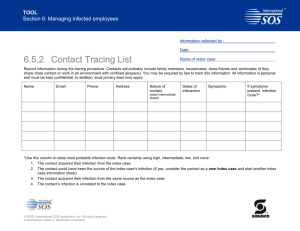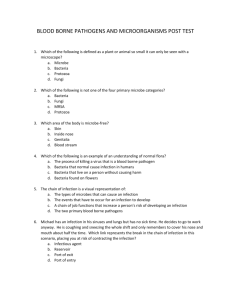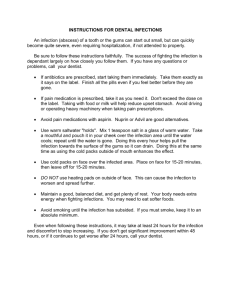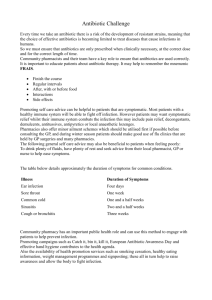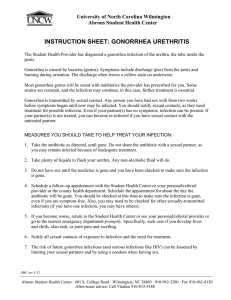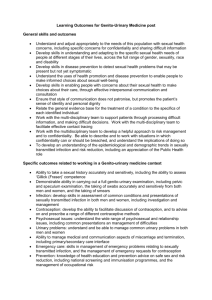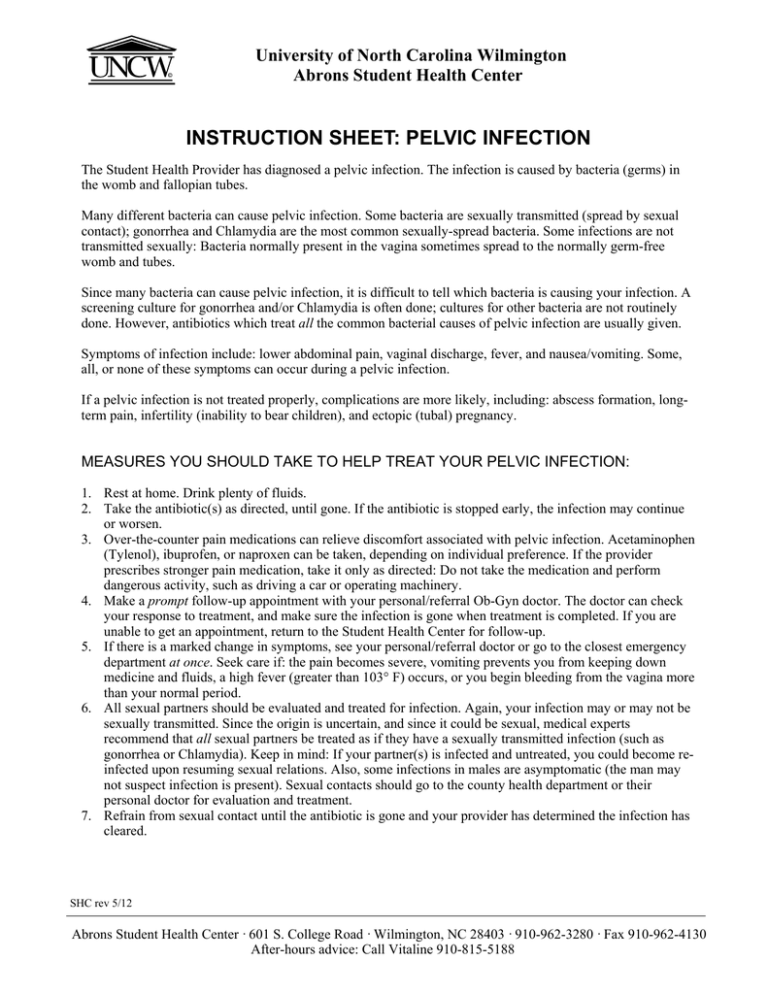
University of North Carolina Wilmington
Abrons Student Health Center
INSTRUCTION SHEET: PELVIC INFECTION
The Student Health Provider has diagnosed a pelvic infection. The infection is caused by bacteria (germs) in
the womb and fallopian tubes.
Many different bacteria can cause pelvic infection. Some bacteria are sexually transmitted (spread by sexual
contact); gonorrhea and Chlamydia are the most common sexually-spread bacteria. Some infections are not
transmitted sexually: Bacteria normally present in the vagina sometimes spread to the normally germ-free
womb and tubes.
Since many bacteria can cause pelvic infection, it is difficult to tell which bacteria is causing your infection. A
screening culture for gonorrhea and/or Chlamydia is often done; cultures for other bacteria are not routinely
done. However, antibiotics which treat all the common bacterial causes of pelvic infection are usually given.
Symptoms of infection include: lower abdominal pain, vaginal discharge, fever, and nausea/vomiting. Some,
all, or none of these symptoms can occur during a pelvic infection.
If a pelvic infection is not treated properly, complications are more likely, including: abscess formation, longterm pain, infertility (inability to bear children), and ectopic (tubal) pregnancy.
MEASURES YOU SHOULD TAKE TO HELP TREAT YOUR PELVIC INFECTION:
1. Rest at home. Drink plenty of fluids.
2. Take the antibiotic(s) as directed, until gone. If the antibiotic is stopped early, the infection may continue
or worsen.
3. Over-the-counter pain medications can relieve discomfort associated with pelvic infection. Acetaminophen
(Tylenol), ibuprofen, or naproxen can be taken, depending on individual preference. If the provider
prescribes stronger pain medication, take it only as directed: Do not take the medication and perform
dangerous activity, such as driving a car or operating machinery.
4. Make a prompt follow-up appointment with your personal/referral Ob-Gyn doctor. The doctor can check
your response to treatment, and make sure the infection is gone when treatment is completed. If you are
unable to get an appointment, return to the Student Health Center for follow-up.
5. If there is a marked change in symptoms, see your personal/referral doctor or go to the closest emergency
department at once. Seek care if: the pain becomes severe, vomiting prevents you from keeping down
medicine and fluids, a high fever (greater than 103° F) occurs, or you begin bleeding from the vagina more
than your normal period.
6. All sexual partners should be evaluated and treated for infection. Again, your infection may or may not be
sexually transmitted. Since the origin is uncertain, and since it could be sexual, medical experts
recommend that all sexual partners be treated as if they have a sexually transmitted infection (such as
gonorrhea or Chlamydia). Keep in mind: If your partner(s) is infected and untreated, you could become reinfected upon resuming sexual relations. Also, some infections in males are asymptomatic (the man may
not suspect infection is present). Sexual contacts should go to the county health department or their
personal doctor for evaluation and treatment.
7. Refrain from sexual contact until the antibiotic is gone and your provider has determined the infection has
cleared.
SHC rev 5/12
Abrons Student Health Center · 601 S. College Road · Wilmington, NC 28403 · 910-962-3280 · Fax 910-962-4130
After-hours advice: Call Vitaline 910-815-5188



